
Bokeo Province: The Heart of Nature and Culture in Laos
Bokeo Province, nestled in the northwestern part of Laos, is a hidden gem waiting to be discovered. Known for its breathtaking landscapes and rich cultural heritage, this province offers a unique blend of adventure and tranquility. The name 'Bokeo' translates to 'gem mine,' and true to its name, it reveals treasures in the form of lush forests, crystal-clear rivers, and vibrant wildlife. One of the main attractions in Bokeo is the Gibbon Experience. This eco-tourism adventure allows visitors to zip-line through the canopy of the Nam Kan National Park, home to the rare black gibbons. It's not just an adrenaline rush; it's also a chance to support conservation efforts and immerse oneself in the natural beauty of the area. The province is also home to diverse ethnic groups, each with its own traditions and way of life. Visiting local villages provides insight into their daily routines and offers opportunities to purchase unique handicrafts. The Mekong River, which flows through Bokeo, is another highlight. A boat trip along the river offers stunning views and a peaceful way to experience the landscape. Whether you're an adventure seeker, a culture enthusiast, or someone looking to unwind, Bokeo Province has something special to offer. Its untouched beauty and warm hospitality make it a must-visit destination in Laos.
Local tips in Bokeo Province
- Visit during the dry season (November to April) for the best weather and easier access to attractions.
- Bring insect repellent and sunscreen, especially if you plan to trek or engage in outdoor activities.
- Respect local customs and dress modestly when visiting villages and religious sites.
- Carry cash, as ATMs are scarce in rural areas and credit card usage is limited.
- Hire a local guide to enhance your experience and gain deeper insights into the region’s culture and natural wonders.
Bokeo Province: The Heart of Nature and Culture in Laos
Bokeo Province, nestled in the northwestern part of Laos, is a hidden gem waiting to be discovered. Known for its breathtaking landscapes and rich cultural heritage, this province offers a unique blend of adventure and tranquility. The name 'Bokeo' translates to 'gem mine,' and true to its name, it reveals treasures in the form of lush forests, crystal-clear rivers, and vibrant wildlife. One of the main attractions in Bokeo is the Gibbon Experience. This eco-tourism adventure allows visitors to zip-line through the canopy of the Nam Kan National Park, home to the rare black gibbons. It's not just an adrenaline rush; it's also a chance to support conservation efforts and immerse oneself in the natural beauty of the area. The province is also home to diverse ethnic groups, each with its own traditions and way of life. Visiting local villages provides insight into their daily routines and offers opportunities to purchase unique handicrafts. The Mekong River, which flows through Bokeo, is another highlight. A boat trip along the river offers stunning views and a peaceful way to experience the landscape. Whether you're an adventure seeker, a culture enthusiast, or someone looking to unwind, Bokeo Province has something special to offer. Its untouched beauty and warm hospitality make it a must-visit destination in Laos.
When is the best time to go to Bokeo Province?
Iconic landmarks you can’t miss
Patuxay - Victory Monument
Vientiane's iconic Victory Monument: a blend of Laotian and French architecture, commemorating the nation's fight for independence and offering panoramic city views.
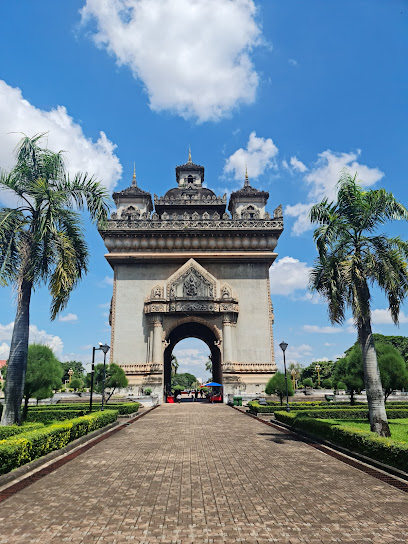
Kuang Si Waterfall
Visit Kuang Si Waterfall in Laos for breathtaking turquoise pools, stunning natural beauty, and a chance to connect with nature.
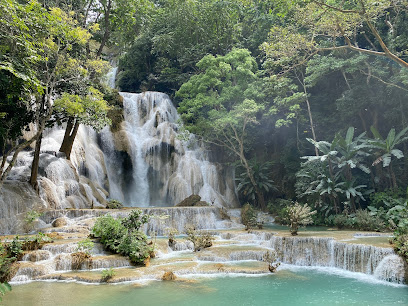
Pha That Luang Vientiane
Explore the breathtaking Pha That Luang, Vientiane's iconic Buddhist stupa and a symbol of Laotian culture and spirituality, rich in history and beauty.
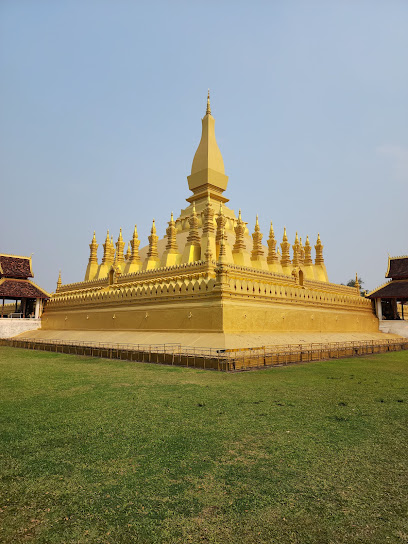
Phousi Hill
Discover the spiritual heart of Luang Prabang at Phousi Hill, where breathtaking views and rich culture combine to create an unforgettable experience.
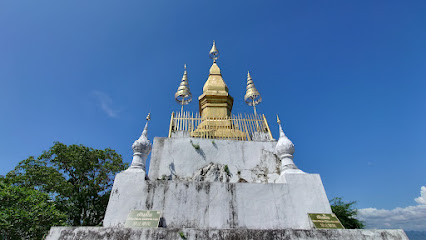
Buddha Park (Wat Xieng Khouane Luang)
Discover the enchanting Buddha Park in Vientiane, where spirituality meets artistry amidst over 200 captivating sculptures and serene landscapes.
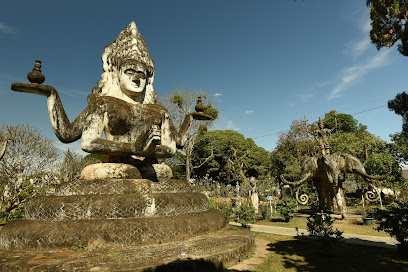
Wat Xiengthong
Discover Wat Xiengthong, Luang Prabang's crown jewel: a temple of gilded artistry, rich history, and spiritual serenity at the Mekong's edge.
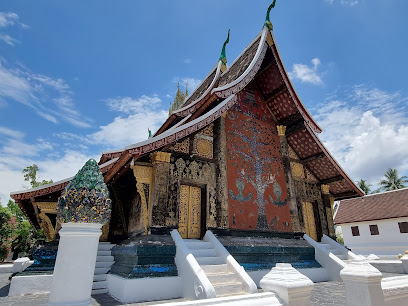
National Museum
Discover the captivating history and culture of Laos at the National Museum, a former royal palace in the heart of Luang Prabang.
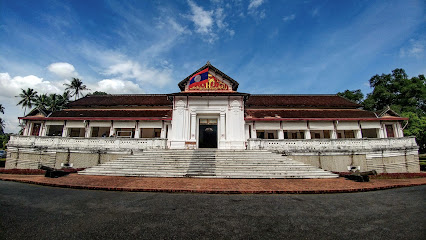
Wat Sisaket
Discover Vientiane's oldest temple, a serene sanctuary housing thousands of Buddha images and showcasing unique Siamese architecture.
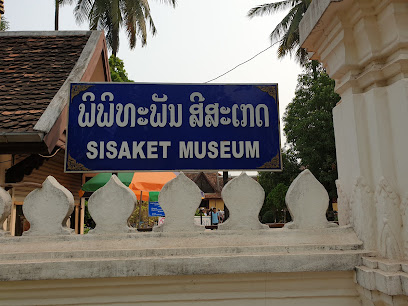
Tad Gneuang Waterfall
Discover Tad Gneuang Waterfall: A hidden paradise in Champasak, Laos, offering serene beauty and a tranquil escape into nature.
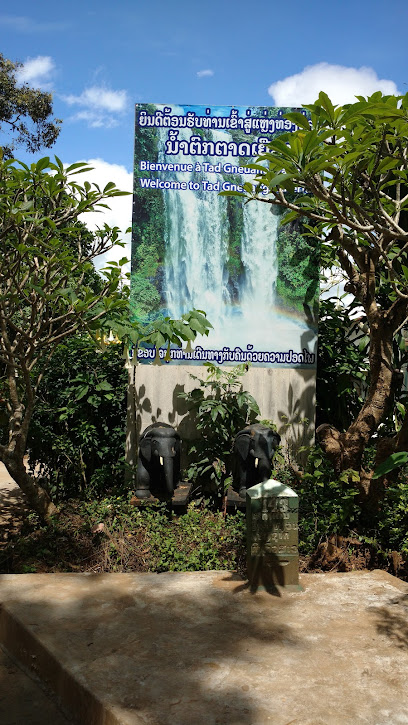
Vat Phou
Explore Vat Phou, a UNESCO World Heritage Site in Laos, where ancient Khmer architecture meets stunning natural landscapes and spiritual serenity.
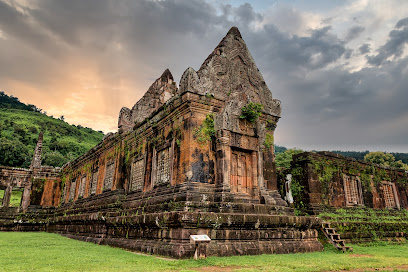
Tat Kuang Si Bear Rescue Centre, Free the Bears
Observe rescued moon bears in a natural setting at this unique sanctuary near the beautiful Kuang Si Falls in Luang Prabang.
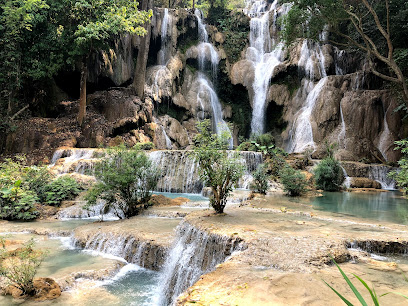
Phou Khao Khouay National Bio-Diversity Conservation Area
Discover Laos' natural beauty: Explore jungles, waterfalls, and diverse wildlife at Phou Khao Khouay National Park, a short trip from Vientiane.
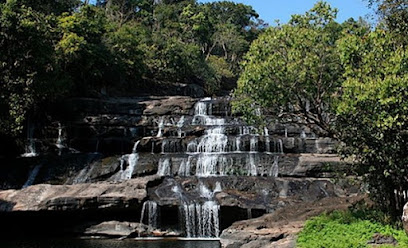
Ho Phrakeo Museum
Explore the rich heritage of Laos at Ho Phrakeo Museum, a cultural gem in Vientiane featuring exquisite artifacts and religious art.

Pak Ou Caves
Discover the spiritual essence and captivating history of the Pak Ou Caves, a stunning religious site filled with thousands of Buddha statues.
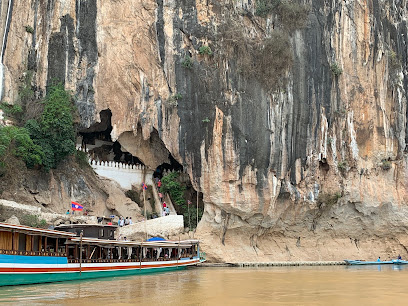
Nam Xay Viewpoint
Discover stunning panoramic views and the natural beauty of Laos at Nam Xay Viewpoint, a true gem in Vang Vieng.
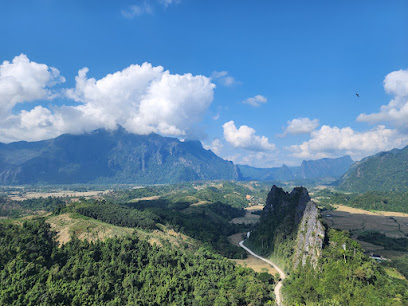
Unmissable attractions to see
The Golden Triangle
Explore The Golden Triangle, where Thailand, Laos, and Myanmar meet, offering rich culture, stunning landscapes, and historical intrigue.
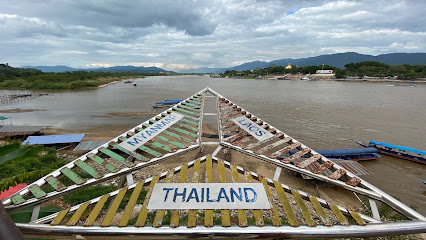
Mekong Skywalk
Discover breathtaking views and serene landscapes at Mekong Skywalk, a must-visit tourist attraction in Chiang Rai, Thailand.
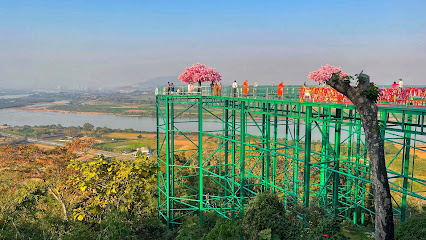
Nam Ha National Bio-Diversity Conservation Area
Explore the stunning landscapes and rich biodiversity of Nam Ha National Bio-Diversity Conservation Area, a true gem in Laos' natural heritage.
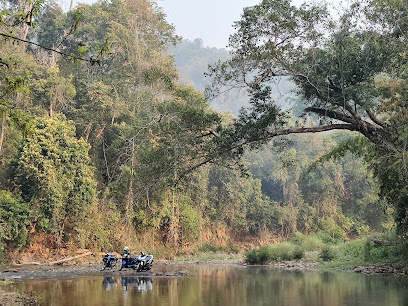
Kong Lor Cave
Discover the captivating beauty of Kong Lor Cave, a remarkable natural wonder in Laos with stunning limestone formations and an enchanting underground river.
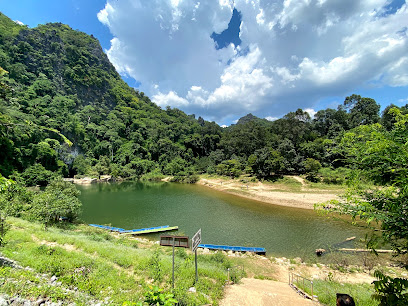
Phu Chi Dao
Discover the stunning vistas and serene beauty of Phu Chi Dao in Chiang Rai, Thailand, a must-visit scenic spot for nature lovers and adventure seekers.
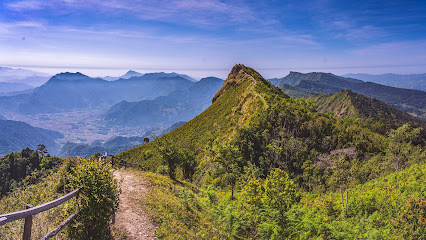
Ban Huai Ian View Point
Experience the breathtaking views and tranquil ambiance of Ban Huai Ian View Point in Chiang Rai, a must-visit scenic spot for nature lovers.
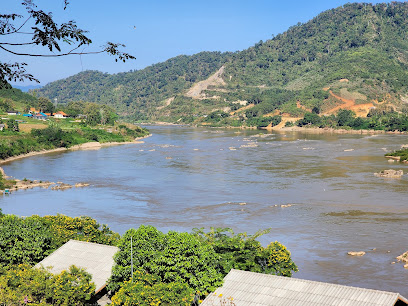
Phra That Doi Pu Khao
Explore the serene beauty and rich history of Phra That Doi Pu Khao, a hidden gem in Chiang Rai that captures the essence of Thailand's cultural heritage.
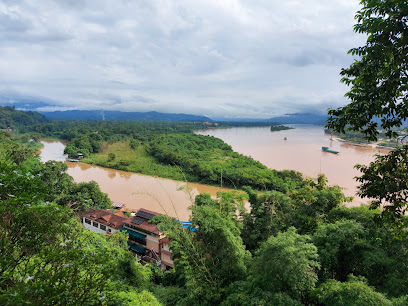
Pha Bong
Experience the tranquil beauty of Pha Bong, a captivating tourist attraction in Chiang Rai, Thailand, surrounded by nature and rich culture.
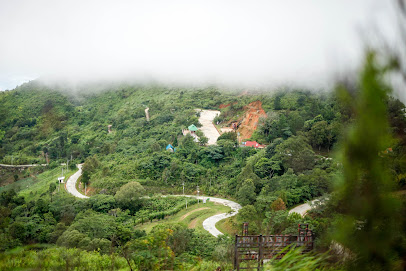
Kaeng Pha Dai
Experience the breathtaking natural beauty of Kaeng Pha Dai, a serene destination in Chiang Rai, perfect for nature lovers and adventure seekers alike.
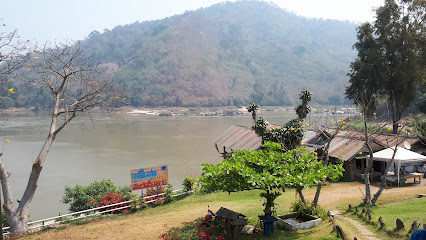
ຄ້າຍເກົ່າທະຫານຝຮັ່ງ Fort Carnot
Discover the historical wonders of Fort Carnot in Huay Xai, a must-visit destination for history enthusiasts and travelers seeking scenic beauty.
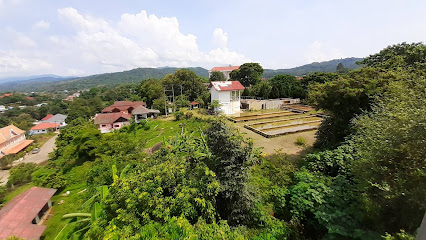
Phu Chi Fah View
Experience the breathtaking beauty of Phu Chi Fah, a stunning mountain viewpoint in Chiang Rai, Thailand, perfect for nature lovers and adventurers.
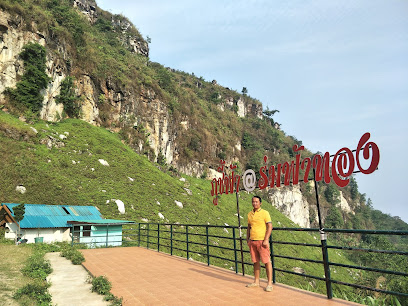
ວັດຈອມເຂົາມະນີຣັຕນ໌ wat jomkhao manylath
Explore the serene Wat Jomkhao Manylath in Huay Xai, a stunning Buddhist temple rich in culture and spirituality, perfect for your travel adventures.
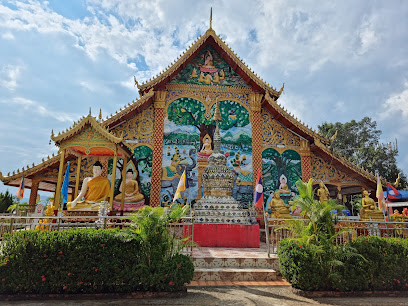
ละมุนละไม flower farm
Discover the vibrant colors and fragrances of the Chiang Rai Flower Farm, a stunning oasis in Thailand's Chiang Saen District, perfect for nature lovers and photographers.
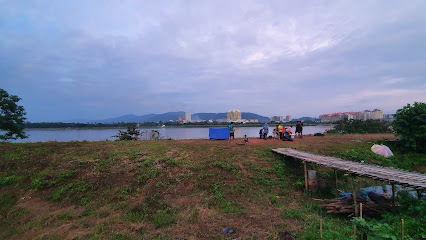
Catfish Park
Experience the serene beauty of Catfish Park in Chiang Khong District, a perfect escape for nature lovers and cultural enthusiasts in Thailand.
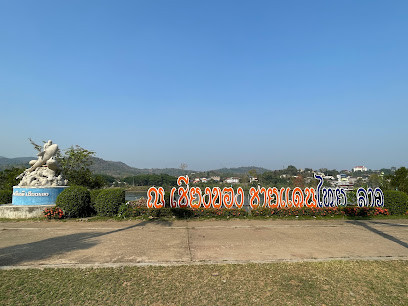
Mekong Smile Cruise Office
Experience unforgettable adventures along the Mekong River with the Mekong Smile Cruise Office in Huay Xai, Laos - your gateway to stunning landscapes and rich culture.
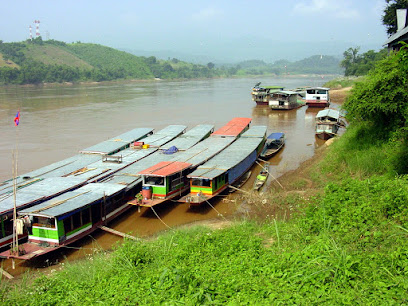
Essential places to dine
Terrasse Restaurant
Experience authentic Laotian cuisine at Terrasse Restaurant in Huay Xai – where local flavors meet cozy ambiance.
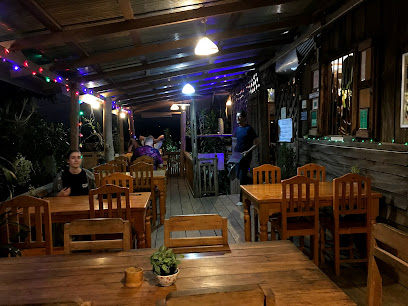
Bar How
Discover Bar How in Huay Xai for an authentic taste of Laos with delicious local dishes and a warm atmosphere.
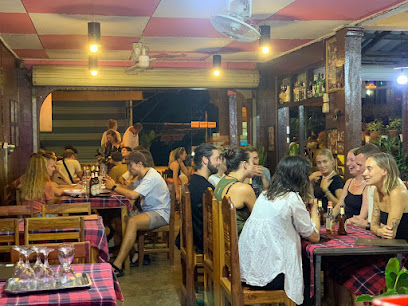
Daauw Home
Discover authentic Lao cuisine and vibrant culture at Daauw Home in Huay Xai—an unforgettable blend of flavors and traditions.
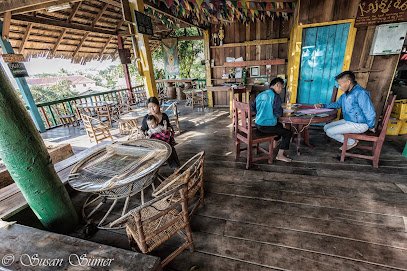
ຮ້ານອາຫານສາຍທານ The Waterside Bokeo Restaurant
Experience authentic Thai-Laos cuisine at The Waterside Bokeo Restaurant with stunning views of the Mekong River in Huay Xai.
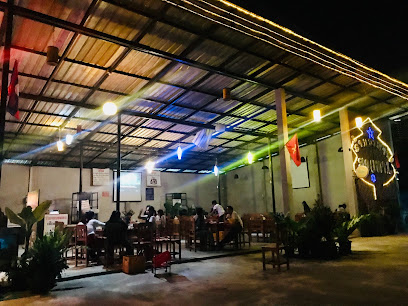
My Laos Restaurant
Experience authentic Laotian cuisine at My Laos Restaurant in Huaixai – where every dish tells a story.
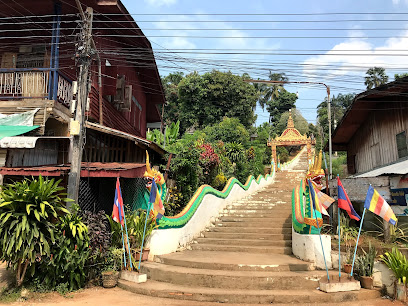
Mingmeaung Restaurant
Discover the flavorful fusion of traditional Laotian cuisine at Mingmeaung Restaurant in Huay Xai.
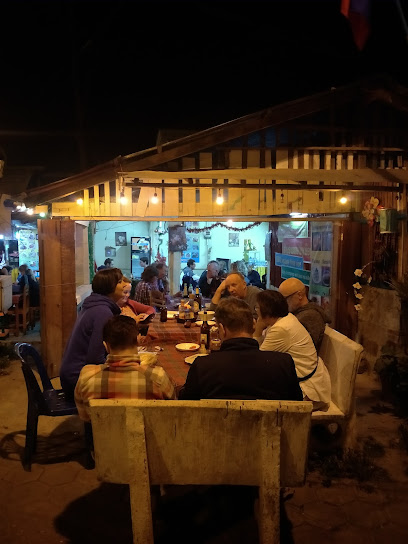
Mae Da Restaurant
Experience the best fusion cuisine at Mae Da Restaurant in Huay Xai – where local flavors meet global inspirations.
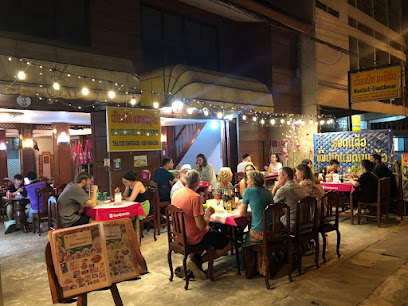
ร้านเฝอมิตรประชา
Experience authentic Laotian flavors at ร้านเฝอมิตรประชา in Huay Xai – your gateway to delicious rice noodles and warm hospitality.
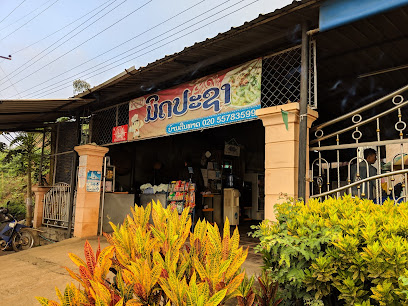
Roof Top Restaurant & Bar
Experience stunning views and exquisite fusion cuisine at the Roof Top Restaurant & Bar in Xouy Xai, Laos – where every meal is a celebration.
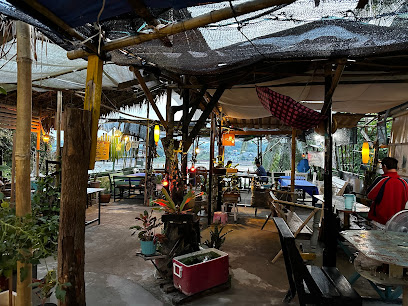
Mik’s Noodle Soup
Discover the authentic flavors of Southeast Asia at Mik's Noodle Soup in Huay Xai – home to exquisite pho and welcoming hospitality.
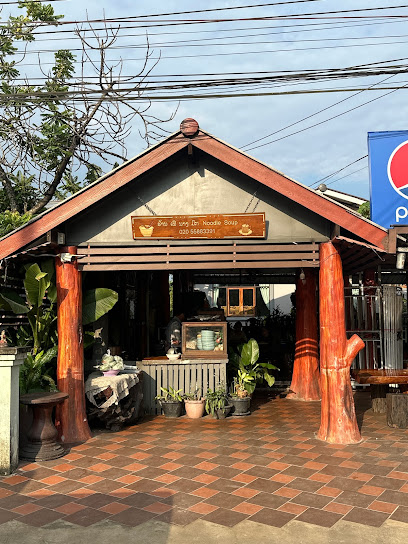
ຮ້ານKM-TonPhueng
Savor the authentic tastes of Laos at KM-TonPhueng – where every dish tells a story.
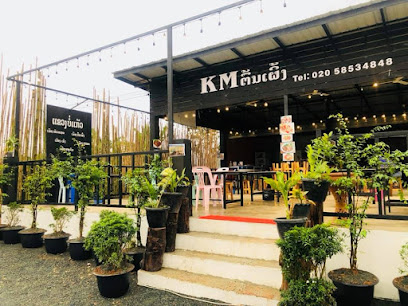
Bokeo Café
Experience the best fusion cuisine at Bokeo Café in Huay Xai—where local flavors meet global inspiration in a cozy atmosphere.
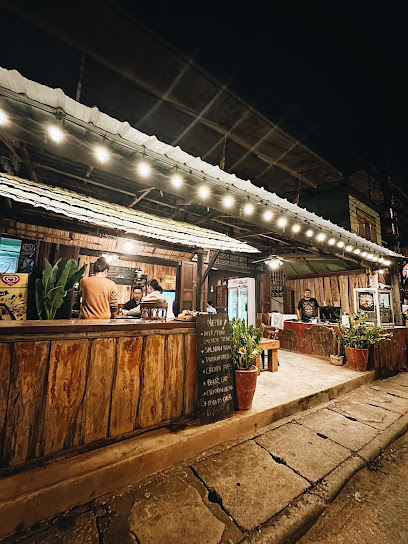
Kanchana Restaurant
Experience the best of Lao cuisine fused with international flavors at Kanchana Restaurant in Huay Xai.
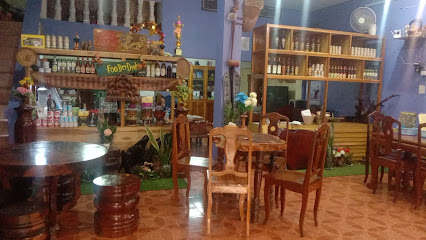
Pakham3
Discover the flavors of Laos at Pakham3 in Huay Xai—where every dish tells a story.
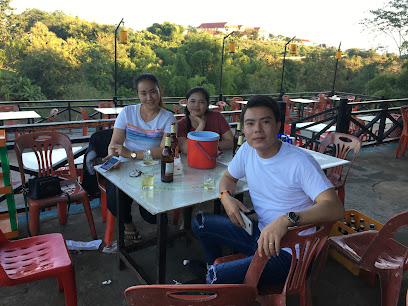
ຮ້ານຊີ້ນດາດສົ້ນຂົ້ວ
Experience authentic Lao flavors at ຮ້ານຊີ້ນດານ ສ་ཻད ກངིཏ་ན་ངོསབྱོ་ in Huay Xai – where every dish is a taste of tradition.
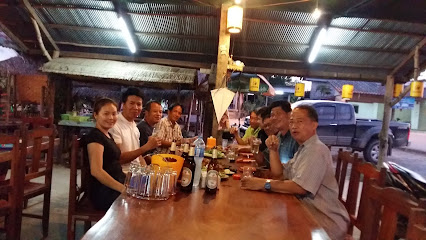
Markets, malls and hidden boutiques
Bokeo Gems Lao ໂຮງງານບໍ່ແກ້ວເຈຍລະໄນອັນຍະມະນີລາວ
Discover authentic handcrafted jewelry and unique souvenirs at Bokeo Gems, a treasure trove of Laotian culture in the heart of Bokeo province.
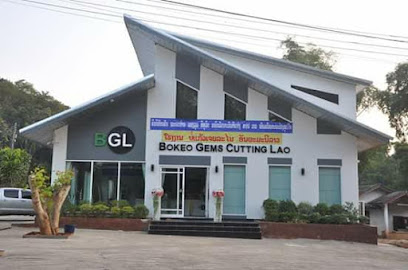
Chinese Super Market
Explore the authentic tastes of Asia at the Chinese Super Market in Huay Xai, a culinary treasure trove for every food lover.
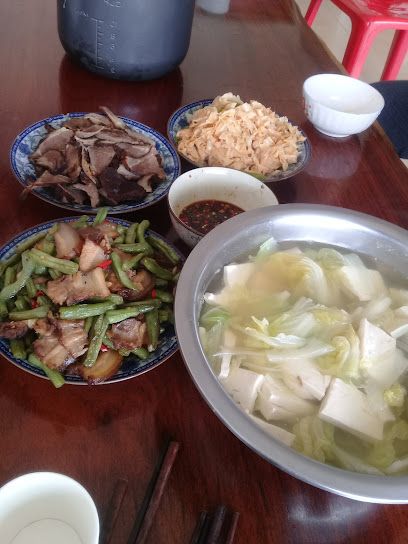
ນາງລານີ ຕັດຍິບ
Explore the vibrant styles of Laos at ນາງລານີ ຕັດຍິບ, a unique clothing store in B. Houay Dinge offering local and contemporary fashion.
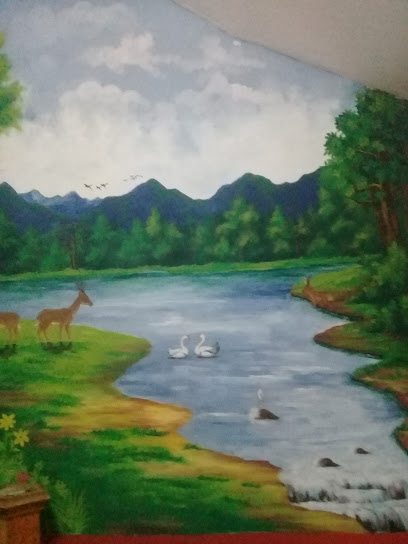
EDL bokeo
Discover cutting-edge electronics and local tech culture at EDL Bokeo in Huay Xai, a must-visit for all tech enthusiasts.
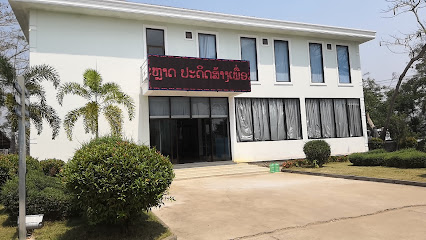
会晒佳隆超市/supermarket
Discover the vibrant atmosphere and unique local flavors at 会晒佳隆超市 in Huay Xai, a must-visit for every traveler.
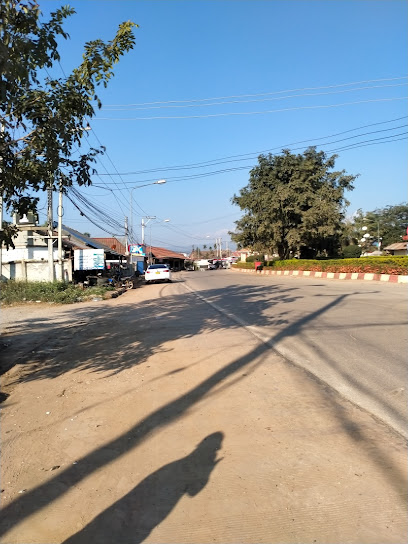
ຮ້ານ ແມ່ໄລ Lai Grocery Store
Discover the essence of Lao cuisine and culture at ຮ້ານ ແມ່ໄລ Lai Grocery Store in Huay Xai, where local flavors come alive.
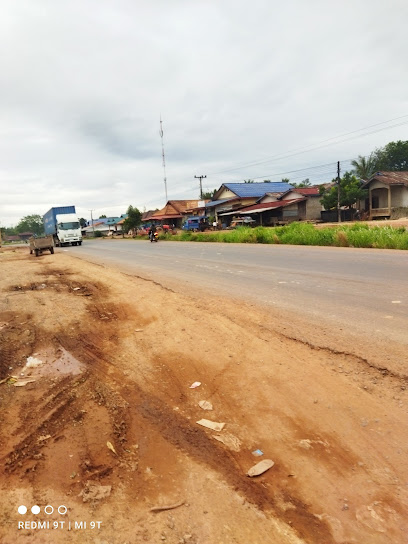
ຮ້ານສ້ອມແປງທີວີແລະຕິດຈານດາວທຽມ
Explore Huay Xai's top Electronics Store - your one-stop destination for all the latest gadgets and tech accessories!
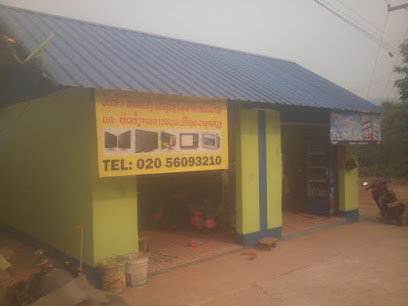
ສູນການຄ້າສາກົນບໍ່ແກ້ວ
Discover unique local treasures and immerse yourself in Huay Xai's vibrant shopping scene at ສູນການຄ້າສາກົນບໍແກ້ວ.

ນເບຍວື
Explore the vibrant Nêbyo Supermarket in Pha Oudom for fresh produce, local snacks, and an authentic taste of Laotian culture.

ລາວເອເຊຍແກ໊ສ
Experience convenient fueling and local snacks at ລາວເອເຊຍແກ໊ສ, the ideal gas shop in B. Nam Pou.

ban pakthanua,muang paktha,khaueng bokeo,laos
Explore Ban Pakthanua: A Cultural Shopping Experience in Muang Paktha, Laos with Local Crafts and Delicious Cuisine.

Restaurant
Experience the authentic taste of Huay Xai at this delightful restaurant, showcasing local flavors and a warm atmosphere for every traveler.
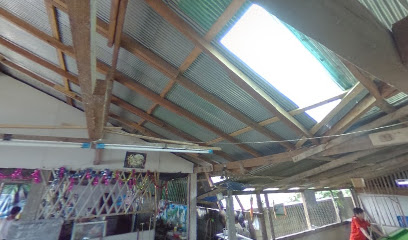
ຮ້ານຂາຍເຄື່ອງຍ່ອຍ ປ໋າ - ເພີບ
Discover the vibrant flavors of Laos at the Grocery Store in Huay Xai, your go-to spot for fresh produce and local delicacies.

ວິລະພົນເຟີນີເຈີ
Discover unique furniture and artisan craftsmanship at ວິລະພົນເຟີນີເຈີ in Huay Xai, a treasure trove for culturally-inspired souvenirs.
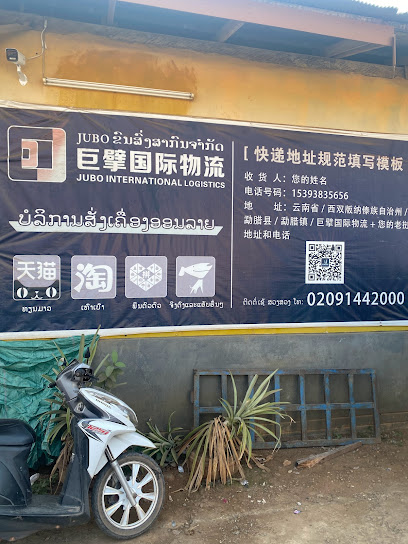
BB football 2
Discover the essence of local fashion at BB Football 2 in Huay Xai, offering a unique blend of traditional and contemporary clothing.

Essential bars & hidden hideouts
Gecko Bar and Ice Cream
Experience the vibrant atmosphere of Gecko Bar and Ice Cream in Huay Xai, where delightful flavors meet a lively bar ambiance.
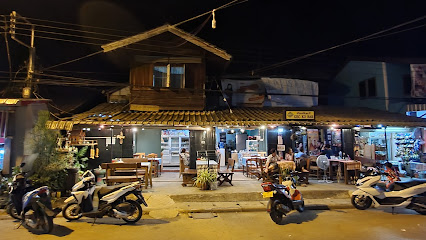
BAD bar
Discover the vibrant nightlife of Huay Xai at BAD Bar, a lively spot with eclectic drinks and a welcoming atmosphere perfect for socializing.
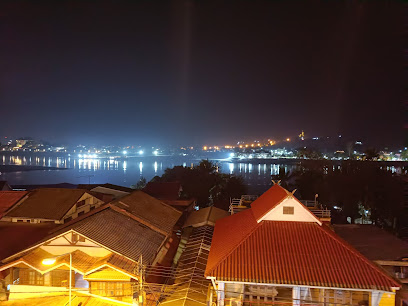
B.A.P Bar
Discover the vibrant atmosphere of B.A.P Bar in Huay Xai, where refreshing drinks and local culture intertwine for an unforgettable experience.
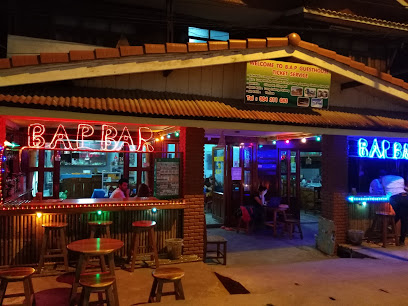
酒吧
Experience the vibrant nightlife of Huay Xai at this lively bar, where local culture meets a welcoming atmosphere.

ຮ້ານອາຫານ ເດິຄີງ the khing
Discover the vibrant atmosphere and local flavors at ຮ້ານອາຫານ ເດິຄີງ the khing, a must-visit bar in Tonpheung, Laos.

ປິ້ງໝາ ສາຍເໜືອ
Explore the vibrant local nightlife at ປິ້ງໝາ ສາຍເໜືອ in Meung Towm, a bar offering unique drinks and an inviting atmosphere.
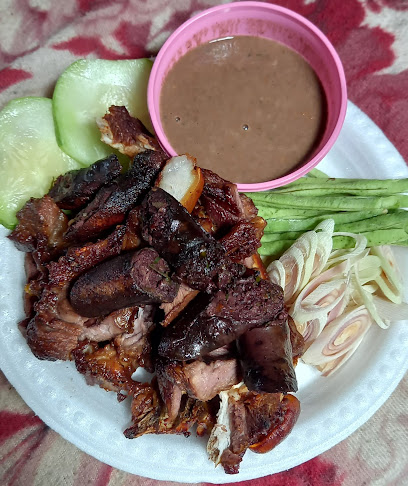
nuj yang
Discover the vibrant nightlife of B. Nam Ngao at Nuj Yang, where exceptional drinks and a lively atmosphere await every visitor.

NICHE BAR. A real 21th century speak easy bar
Discover the charm of Niche Bar, a trendy speakeasy in Ban Ta Fa, serving innovative cocktails in an intimate setting.

金钻酒吧
Discover the lively nightlife of 金钻酒吧 in Laos' Golden Triangle, where local culture meets modern vibes for an unforgettable experience.

띤빼
Immerse yourself in the vibrant nightlife of Tonpheung at 띤빼, a lively bar offering a blend of local culture and refreshing drinks.

พับ
Discover the lively nightlife at พับ in Tonpheung, where local culture and vibrant drinks create an unforgettable experience.

ໂຮງານນ້ຳດື່ມວັງຄຳ
Explore Tonpheung's vibrant nightlife at ໂຮງານນ້ຳດື່ມວັງຄຳ, a lively bar offering refreshing drinks and a warm atmosphere for travelers.

酒肆餐饮服务有限公司
Discover the local bar culture at 酒肆餐饮服务有限公司 in Laos' Golden Triangle, where vibrant nightlife and unique drinks await.
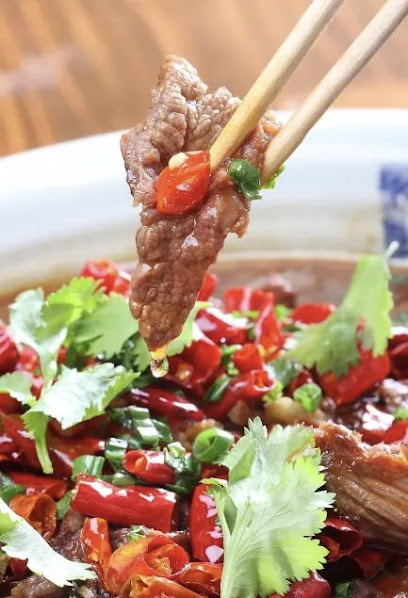
i เหลียน
Discover the lively bar scene at i เหลียน in Van Pak Len, where great drinks and a welcoming atmosphere await every visitor.

Local Phrases about Bokeo Province
-
- Helloສະບາຍດີ
[sa baai di] - Goodbyeຜ່ານທາງ
[paan thang] - Yesໂດຍ
[doi] - Noບໍ່
[bo] - Please/You're welcomeກະລຸນນາ
[ka luun naa] - Thank youຂອບໃຈ
[khob chai] - Excuse me/Sorryຂ້າພິດ
[kha phid] - How are you?ສະບາຍດີບໍລິສໍາ
[sa baai di bo li sam] - Fine. And you?ບໍລິສໍາ. ເຈົ້າເດີ້ສາມາດື?
[bo li sam. jao deu sam doo?] - Do you speak English?ເຈົ້າເວົ້າພາສາອັງກິດບໍ?
[jao waa phasa angkit bo?] - I don't understandຂ້າພິດບໍ່ເອີ້
[kha phid bo eu]
- Helloສະບາຍດີ
-
- I'd like to see the menu, pleaseຂ້າພິດຫຼືລາຍການເບິ່ງຕາມກຸ່ມ
[kha phid loo lai kan beng tam khum] - I don't eat meatຂ້າພິດບໍ່ເອີ້ຂອງ
[kha phid bo eu khong] - Cheers!ຂື້ນກິດ!
[kun kit] - I would like to pay, pleaseຂ້າພິດຈ່າອາກາດຕາມ
[kha phid jaa a kaat tam]
- I'd like to see the menu, pleaseຂ້າພິດຫຼືລາຍການເບິ່ງຕາມກຸ່ມ
-
- Help!ຊ່ວຍງາມ!
[suu nam] - Go away!ໄປຫາສະມາຍ!
[pai ha sam mai] - Call the Police!ໂທດເມືອງ!
[tho meuang] - Call a doctor!ໂທດທ່ານພາບ!
[tho than phab] - I'm lostຂ້າພິດອອກໄລ
[kha phid aok lai] - I'm illຂ້າພິດແຈກແລ
[kha phid chae lai]
- Help!ຊ່ວຍງາມ!
-
- I'd like to buy...ຂ້າພິດຊື້...
[kha phid su...] - I'm just lookingຂ້າພິດເບິ່ງໄວ
[kha phid beng wai] - How much is it?ມັນຕາຍເທື່ອ?
[man tai theu?] - That's too expensiveນີ້ຖືກໂຫລກແລ້ວ
[ni teuk hork laew] - Can you lower the price?ເຈົ້າສາມາດບໍ່?
[jao sam do bo?]
- I'd like to buy...ຂ້າພິດຊື້...
-
- What time is it?ເວລາໝົດອາຍຸ?
[wela mot aayu?] - It's one o'clockເວລາສິບ
[wela sip] - Half past (10)ສິບສິບ
[sip sip] - Morningເຊົ້າ
[sao] - Afternoonບ່ອນຕໍ່
[bon toe] - Eveningແລງ
[laeng] - Yesterdayວັນວັດຕຸ້
[wan wat tu] - Todayມື້ນີ້
[mei ni] - Tomorrowມື້ອື່ນ
[mei eun] - 1ໜວດ
[nuat] - 2ສອງ
[song] - 3ສາມ
[sam] - 4ສີ
[si] - 5ເຫຼັດ
[huet] - 6ຫົກ
[hok] - 7ແປດ
[phet] - 8ເຈັດ
[jed] - 9ແປດ
[kao] - 10ສິບ
[sip]
- What time is it?ເວລາໝົດອາຍຸ?
-
- Where's a/the...?ຢູ່ທີ່...?
[yuu tee...?] - What's the address?ທີ່ຢູ່ດຽວ?
[tee yuu dai?] - Can you show me (on the map)?ເຈົ້າສາມາດສະແດງຂ້າພິດໃນແຜນທ່ອງນໍ້?
[jao sam do sa mang suu nai phaen tong noy?] - When's the next (bus)?ມື້ແລ້ວຈົນກາງຕໍ່ງາ?
[mei laew jon kang toe nga?] - A ticket (to ....)ກີບບໍ່ເປົ້າ (...)
[kip bo pao (...)]
- Where's a/the...?ຢູ່ທີ່...?
History of Bokeo Province
-
Bokeo Province is part of the historical region associated with the Lan Xang Kingdom, which existed from the 14th to the 18th centuries. Lan Xang, meaning 'Million Elephants', was one of the largest kingdoms in Southeast Asia and played a significant role in the region's history, influencing the culture, religion, and social structures that are still evident in Bokeo today.
-
During the late 19th and early 20th centuries, Bokeo Province, like much of Laos, fell under French colonial rule as part of French Indochina. This period saw the introduction of new administrative systems, infrastructure developments, and the influence of French culture, which can still be seen in some of the colonial architecture and urban planning in the province's towns.
-
In the early 20th century, the discovery of gold deposits in the region led to increased economic activity and the eventual establishment of Bokeo Province in 1983. The name 'Bokeo' translates to 'gem mine,' reflecting the area's rich mineral resources. This discovery brought prosperity and attracted settlers, shaping the demographic and economic landscape of the province.
-
Bokeo Province is part of the infamous Golden Triangle, a region where the borders of Laos, Myanmar, and Thailand converge. Historically, the Golden Triangle was one of the world's foremost opium-producing areas. The opium trade significantly impacted the region's social and economic structures, leading to various international efforts to curb production and promote alternative livelihoods.
-
In the early 2000s, Bokeo Province gained international attention with the establishment of The Gibbon Experience, an innovative conservation project that combines eco-tourism with wildlife protection. The project focuses on preserving the habitat of the black-cheeked gibbon and promoting sustainable tourism. Visitors can stay in treehouses and traverse the forest canopy via zip-lines, providing a unique way to experience the region's natural beauty and biodiversity.
-
Bokeo Province is home to a diverse array of ethnic groups, including the Lao Loum, Khmu, Hmong, and Akha. Each group maintains its unique traditions, languages, and customs, contributing to the rich cultural tapestry of the province. Festivals, traditional clothing, and indigenous crafts are integral parts of the local culture, offering visitors a glimpse into the province's multifaceted heritage.
Bokeo Province Essentials
-
Bokeo Province is located in the northwest of Laos, bordering Thailand and Myanmar. The main entry point is via Houayxay, the provincial capital, which is accessible by various means. The closest international airport is in Chiang Rai, Thailand. From there, you can take a bus or taxi to the border town of Chiang Khong, and then a short ferry ride across the Mekong River into Houayxay. Alternatively, domestic flights are available from Vientiane to Luang Namtha, followed by a bus or taxi ride to Houayxay.
-
Local transportation options in Bokeo Province include tuk-tuks, songthaews (shared pickup trucks), and motorbike rentals. Tuk-tuks are a common and affordable way to get around Houayxay and nearby areas. Renting a motorbike is also a popular option for those looking to explore more remote parts of the province at their own pace. For longer distances, buses and minivans are available to connect Houayxay with other towns in Laos.
-
The official currency in Laos is the Lao Kip (LAK). While some larger hotels and tourist-oriented businesses in Houayxay may accept credit cards, cash is the preferred method of payment. ATMs are available in Houayxay, but they may not always be reliable, so it's advisable to carry sufficient cash, especially when traveling to more remote areas. It's also useful to have some US dollars or Thai baht as a backup, as they are widely accepted.
-
Bokeo Province is generally safe for tourists, but it's always wise to take standard precautions. Avoid walking alone at night in unfamiliar areas and keep an eye on your belongings in crowded places. Petty crimes like pickpocketing can occur, especially in busy markets or tourist spots. While there are no specific high-crime areas targeting tourists, always stay vigilant and aware of your surroundings.
-
In case of emergency, dial 1191 for police assistance and 1195 for medical emergencies. Houayxay has a hospital and several clinics that can handle minor health issues. For more serious conditions, you may need to travel to a larger hospital in Luang Namtha or even cross the border to Thailand for better medical facilities. It's highly recommended to have travel insurance that covers medical emergencies and evacuation if necessary.
-
Fashion: Do dress modestly, especially when visiting temples or rural villages. Avoid wearing revealing clothing. Religion: Do respect local customs and traditions. Always remove your shoes and cover your shoulders when entering temples. Public Transport: Do be respectful and give up your seat to elderly passengers. Don't eat or drink on public transport. Greetings: Do greet people with a slight bow or a 'nop' (palms together in a prayer-like gesture). Eating & Drinking: Do try local delicacies and accept food offerings graciously. Don't refuse hospitality, as it is considered impolite.
-
To experience Bokeo Province like a local, visit the morning market in Houayxay where you can buy fresh produce and traditional Lao goods. Engage with locals, as they are often friendly and willing to share stories about their culture and way of life. Don't miss a visit to the Bokeo Nature Reserve and the Gibbon Experience, where you can stay in treehouses and zip-line through the forest. For a unique experience, take a boat trip on the Mekong River to explore the natural beauty and remote villages along its banks.
Trending Landmarks in Bokeo Province
-
Patuxay - Victory Monument
-
Kuang Si Waterfall
-
Pha That Luang Vientiane
-
Phousi Hill
-
Buddha Park (Wat Xieng Khouane Luang)
-
Wat Xiengthong
-
National Museum
-
Wat Sisaket
-
Tad Gneuang Waterfall
-
Vat Phou
-
Tat Kuang Si Bear Rescue Centre, Free the Bears
-
Phou Khao Khouay National Bio-Diversity Conservation Area
-
Ho Phrakeo Museum
-
Pak Ou Caves
-
Nam Xay Viewpoint
Nearby Cities to Bokeo Province
-
Things To Do in Muang Sing
-
Things To Do in Luang Prabang
-
Things To Do in Nan
-
Things To Do in Vang Vieng
-
Things To Do in Chiang Mai
-
Things To Do in Pai
-
Things To Do in Phonsavan
-
Things To Do in Xieng Khouang
-
Things To Do in Vientiane
-
Things To Do in Loei
-
Things To Do in Mae Hong Son
-
Things To Do in Sukhothai
-
Things To Do in Udon Thani
-
Things To Do in Sapa
-
Things To Do in Inle Lake








